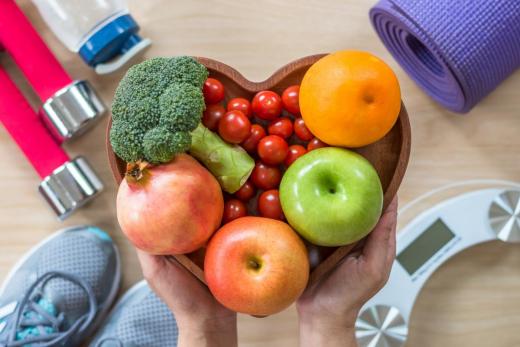
Personal well-being isn’t just how physically fit you are, or how you feel right now. Achieving wellness involves making choices that positively affect you in many different areas of life, as physical and mental health interact with each other. Working toward wellness can help you to engage in positive interactions, ward off stress, and reduce the likelihood of becoming ill, according to the University of California Davis.
There are actually 8 different dimensions of wellness. Think of it like a wheel. The wedges in your wellness wheel can be of different size and importance, but all of them require some attention.
Let’s take a look at all eight categories of wellness, and tips for improving each one:
1. EMOTIONAL WELLNESS
Emotional wellness means having the skills and strategies to cope with stress. This includes being attuned to your thoughts and feelings and expressing them in a meaningful way and being connected with others. When we are emotionally well, we tend to be physically well, have a brighter outlook on the future, and view the present favorably.
- How to improve: Practice good self-care. Take time for yourself to do the things you enjoy, such as reading, journaling, crafting or cooking. Express gratitude. Allow yourself to be vulnerable with others and share your thoughts and feelings respectfully.
2. ENVIRONMENTAL WELLNESS
The University of Illinois defines environmental wellness as “leading a lifestyle that is respectful of and in harmony with your environment,” and that “environmental wellbeing involves being aware of the limits of the earth's natural resources and understanding the impact of your actions on the environment.” It can also be thought of as living in a pleasant, stimulating place that supports our wellbeing.
- How to improve: Recycle. Turn off extra lights or electronics when not in use. Cut a minute or two off your showers. Go for a walk. Take a few moments daily to appreciate the nature around you.
3. FINANCIAL WELLNESS
When we are financially well, we are satisfied with our current and future financial situation. This can be a difficult, ongoing task, especially if we do not have a plan to achieve our financial goals.
- How to improve: Identify realistic financial goals based on your income. Track your spending. Determine your wants vs. your needs. Create a budget to hold yourself accountable. Limit unnecessary spending and boost your savings.
4. INTELLECTUAL WELLNESS
Opening our minds to new ideas and experiences, seeking out ways to be creative, engaging with the world and being a life-long learner are all components of intellectual wellness.
- How to improve: Read for fun. Learn a new skill or trade. Play a game. Learn an instrument. Journal. Break your routine and try something new. Be aware of sociopolitical issues. Be curious.
5. OCCUPATIONAL WELLNESS
Occupational wellness is a balance between personal and professional life that leads to fulfillment and financial stability. It involves feeling successful and good about our accomplishments. Occupational wellness can be worked on regardless of your career or how long you’ve worked in that field.
- How to improve: Stay motivated and work toward what you want. Increase your knowledge and skills to accomplish your goals. Find the benefits and positives in your current job. Enjoy what you do; do what you enjoy. Create connections with your co-workers. Write out goals, create a plan to execute them, and then start working on your plan. Look for something new and/or talk to a career counselor if you feel stuck or unhappy.

6. PHYSICAL WELLNESS
When we take care of ourselves, we can get the most out of our body and our health. Physical wellness includes working on good nutrition, physical activity, and sleep, as well as our mental health, such as building positive self-esteem.
- How to improve: Be active! Incorporate at least 30 minutes of activity into your day. Take walking breaks or stretching breaks during work. Eat healthy foods, including a variety of fruits and vegetables. Develop a regular sleep schedule and try to get 7-9 hours of sleep each night. Go to your doctor for annual health checks.
7. SOCIAL WELLNESS
Social wellness refers to our relationships and how we interact with others. These relationships could be with family, friends, coworkers, colleagues, neighbors, and more.
- How to improve: Be open to communicating your feelings, your needs, and your thoughts with trusted others and be open to listening to them as well. Avoid what Psychologist John Gottman has identified as four “relationship killers”:
- Criticism – attacking someone’s character
- Contempt – disrespect through condescending or sarcastic statements or nonverbal behaviors like eye-rolling
- Defensiveness – making excuses and retaliating when we feel attacked
- Stonewalling – withdrawing from the interaction, shutting down, closing yourself off
8. SPIRITUAL WELLNESS
Spirituality is not the same as religion, but they are related. The University of California-Riverside defines spiritual wellness as “a personal matter involving values and beliefs that provide a purpose in our lives.” Spiritualism is individualistic, but generally can be thought of as the search for meaning.
- How to improve: Take part in activities that are in line with your values, such as prayer, meditation, or specific spiritual or religious practices that support your connection to a higher power or belief system.
Sources: University of California Davis; Washington State University, Village EAP counselors




